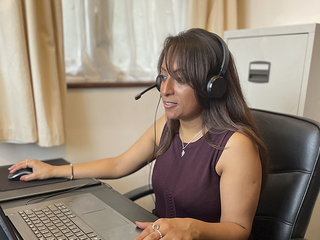What is childhood acute lymphoblastic leukaemia (ALL)?
Acute lymphoblastic leukaemia (ALL) is a type of blood cancer that affects blood-producing cells in the bone marrow – the spongy material inside some bones where blood cells are made.
What does acute lymphoblastic leukaemia mean?
The word ‘acute’ means developing quickly. ‘Lymphoblastic’ refers to lymphoid blasts, the type of white blood cell affected by the leukaemia.
Normally, lymphoid blasts in the bone marrow develop into white blood cells called lymphocytes. These play a key role in fighting off infection. The body needs new lymphocytes all the time, and usually the bone marrow makes the right amount.
In ALL, this process goes wrong. The blast cells multiply too quickly, and don’t develop properly.
These abnormal blast cells are leukaemia cells. They overcrowd the bone marrow and spill out into the bloodstream.
As more leukaemia cells develop, there’s less room in the bone marrow to make healthy blood cells, including white blood cells, red blood cells and platelets. This causes most of the symptoms of ALL.
What causes childhood ALL?
We don’t know yet what causes childhood ALL. We do know that changes happen in the genes of cells in the bone marrow. Genes are a set of instructions that tell individual cells how to behave, and errors in these instructions mean cells can’t function properly.
There’s nothing you could have done to stop your child developing leukaemia. It’s not possible to "catch" leukaemia from someone else and it isn’t passed from parent to child.
There are some things that make it more likely to develop childhood ALL:
- Sex: Boys are slightly more likely to develop ALL than girls. We don’t know why.
- Age: ALL can occur at any age but is most common in children under 4 years old.
- Genetic conditions: Children and young adults with some genetic conditions (such as Down’s syndrome) have a higher risk of developing ALL than normal.
- Radiation: High doses of radiation can lead to leukaemia, but it’s unlikely to cause many cases in the UK, if any at all.
The Down’s Syndrome Association has more information about Down’s syndrome and leukaemia.

Worried about anything or have questions?
If you need someone to talk to, please don't hesitate to contact our Support Service by phone or email.
